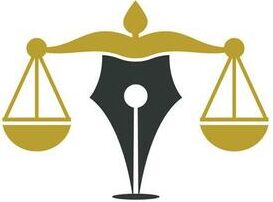Running an accounting firm requires strategic planning, the right tools, and specialized skills. Effective communication, ongoing education, and the best technology can enhance efficiency and client satisfaction. A firm that prioritizes organization and innovation will stand out in a competitive industry. Below, we will explore essential communication tools, necessary skills, and must-have software to help you run a successful accounting firm. Keep reading to learn more.
Top Communication Tools for Seamless Client Interactions

Clear and efficient communication is essential for managing client relationships. Video conferencing software such as Zoom and Microsoft Teams allows accountants to discuss financial matters remotely while maintaining a professional presence. Secure client portals like ShareFile and SmartVault provide a safe way to exchange sensitive documents without relying on unsecured email attachments.
Understanding how VOIP works is crucial for handling client calls efficiently. VOIP systems like RingCentral and Nextiva enable firms to set up professional call routing, voicemail transcriptions, and integrations with CRM software. These tools help maintain seamless communication, ensuring client inquiries receive prompt responses.
Instant messaging platforms such as Slack and Microsoft Teams facilitate real-time communication among team members. These tools reduce reliance on lengthy email threads and provide an organized way to discuss projects, share updates, and collaborate on financial reports. Having a structured communication system improves workflow and ensures accuracy in client deliverables.
Automated scheduling tools like Calendly and Acuity simplify appointment setting by allowing clients to book meetings based on real-time availability. These tools eliminate back-and-forth emails, prevent scheduling conflicts, and provide automated reminders. Efficient appointment management enhances the client experience and helps maintain a structured workflow.
Essential Skills and Education for a Successful Accounting Firm

A deep understanding of financial regulations ensures compliance and accurate reporting. Accountants must stay informed about tax laws, industry standards, and regulatory updates to provide clients with reliable advice. Professional certifications such as CPA or CMA validate expertise and demonstrate a commitment to excellence.
Strong analytical skills are necessary for interpreting financial data and providing strategic insights. Accountants must assess profit margins, cash flow trends, and tax implications to guide clients effectively. Attention to detail ensures the accuracy of reports, preventing costly errors that could affect financial decisions.
Effective client management skills help build lasting professional relationships. Active listening, empathy, and problem-solving abilities allow accountants to address client concerns and offer tailored financial solutions. Strong interpersonal skills improve trust and foster long-term business partnerships.
Pursuing an online accounting associate degree provides a solid foundation in accounting principles, taxation, and business law. Continued education through workshops, webinars, and industry conferences enhances expertise and keeps professionals updated on evolving financial practices. Lifelong learning contributes to career growth and firm success.
Must-Have Software and Tools for Efficient Accounting Operations
Cloud-based accounting software like QuickBooks Online and Xero streamlines bookkeeping, invoicing, and financial reporting. These platforms offer automation features that reduce manual data entry, improving efficiency and accuracy. Cloud access ensures real-time collaboration and secure data storage.
Expense management tools such as Expensify and Receipt Bank simplify tracking business expenses. These applications allow users to scan receipts, categorize transactions, and generate expense reports effortlessly. Automated processes reduce errors and save time, enabling accountants to focus on strategic financial planning.
Payroll software like Gusto and ADP automates salary calculations, tax withholdings, and compliance reporting. These platforms ensure employees receive timely payments while maintaining tax accuracy. Integration with accounting systems enhances financial management and reduces administrative workload.
Client relationship management (CRM) software such as HubSpot and Zoho CRM organizes client data, tracks interactions, and automates follow-ups. These tools help firms manage leads, nurture client relationships, and improve customer retention. A well-structured CRM system enhances client communication and business growth.
Overall, running a successful accounting firm requires a combination of effective communication, specialized skills, and advanced technology. By leveraging the right tools and continuously enhancing expertise, firms can improve efficiency, maintain compliance, and provide exceptional client service.

